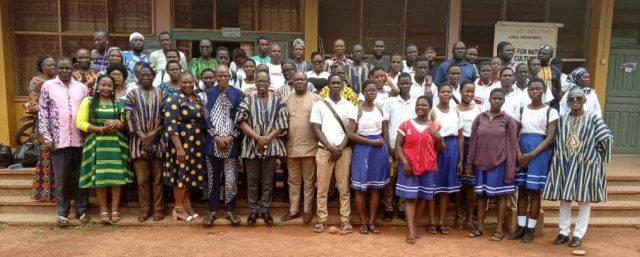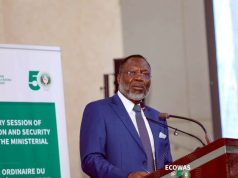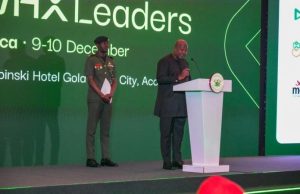Nana Otuo Owoahene Acheampong, the Executive Director Of the National Commission on Culture, said Copyright is a cornerstone of cultural preservation and economic development in the country.
According to him, Copyright provides legal protection for literary and artistic works ranging from books, music, and films to paintings, sculptures, logos, and even computer software, which are vital components of the Ghanaian cultural heritage.
Nana Acheampong said this during the sensitization workshop in Tamale, which was organized by the Reproduction Rights Organisation of Ghana, known as Copy Ghana, in collaboration with the National Commission on Culture, the International Federation of Reproduction Rights Organisations (IFRRO), and the World Intellectual Property Organization (WIPO).
The event’s theme was “Relevance of Collection Licensing for Text and Image-Based Works in the Digital Transformation Era.”
Its purpose was to educate rightsholders in the text—and image-based works sector about collective licensing and equip them with practical strategies to promote and enforce their rights in the digital age. It also discussed the role of collective management organizations in protecting intellectual property rights.
It was also to shed light on the critical role that collective licensing plays in the new digital landscape.
Nana Acheampong stated, “Safeguarding these cultural assets is crucial to the socio-economic advancement of nations worldwide”.
He noted that, according to global statistics, the copyright industries contribute, on average, 5.54 percent to national GDPs and account for 5.78 percent of employment.
Nana Acheampong further explained that a 2020 study published in Ghana highlighted that our copyright industries contribute up to 4.02 percent to GDP while employing about 4.77 percent of the national workforce.
He also added that the copyright sector was the eighth-largest contributor to Ghana’s GDP in 2016. Industries within the press and literature category were the most significant contributors, accounting for between 71 and 83 percent of the core copyright industry’s value during the study period.
He added that the National Commission on Culture has pledged to foster the legal framework for managing copyright owners’ rights to operate within the law and adhere to the highest standards of governance.
Mr Asare Konadu, Yamoah, the Board Chairman of Copy Ghana, advised the authors of their creations to register their works for copyright protection.
He noted that Copyright registration is the process of officially registering a work of authorship with the government, and it has several benefits.
He added that the most crucial benefit of copyright registration is creating a public record of the work. It can be helpful if ever infringed upon because it allows the copyright owner to sue for damages.
Mr Yamoah said that other benefits of copyright registration included collecting statutory damages, recovering attorney’s fees, and creating a presumption of ownership.
“If you have a work of authorship that you would like to protect, consider copyright registration; it may be the best way to ensure that your work is fully protected under the law”. He stated
Mr Abubakari Iddrisu Saeed, Northern Regional Director of the Centre for National Culture, said collective licensing offers a practical solution for managing rights in text—and image-based works. It ensures that creators are fairly compensated while making it easier for users or consumers to access and utilize these works.
He also urged the participants to work collectively and collaboratively to ensure that the creators are empowered, the country’s heritage is protected, and the nation is well positioned in this digital transformation era.
As part of the workshop, the participants were also engaged in insightful discussions, shared knowledge and explored best practices.

















